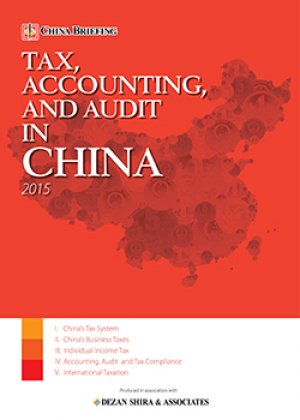China Regulatory Brief: Coal Resource Tax Rules, and Subsidies for Shanghai E-commerce Platforms
China’s Free Trades Zones Going Forward
On July 7, China’s Ministry of Commerce (MOFCOM) released the statistics on the level of investment in the new free trade zones in Guangdong, Tianjin and Fujian. By the end of May 2015, 170 foreign-invested enterprises (FIEs) had been established in the Guangdong FTZ, and 80 in the Tianjin FTZ. Notably, a number of 146 FIEs have been established in the Fujian FTZ, accounting for more than 70 percent of the total number of FIEs that are newly established in the Fujian Province. The three new FTZs were officially launched in April this year, with tailored policies for each expected in the future.
China Releases Administrative Measures on the Collection of Coal Resource Tax
On July 1, the State Administration of Taxation (SAT) released the “Administrative Measures on the Collection of Coal Resource Tax,” which will take effect on August 1. The Measures clarify the method for determining the taxable price of coal, the proper deductions for freight and other costs, as well as the tax calculation method of washed coal. Based on the Measures, coal will be taxed based on its sale price at a rate ranging between two percent and ten percent set by the provincial governments according to local socioeconomic conditions. For example, the rates in coal-dependent provinces such as Shanxi will be comparatively higher.
![]() RELATED: With New Environmental Protection Tax, the Polluter Now Pays in China too
RELATED: With New Environmental Protection Tax, the Polluter Now Pays in China too
Shanghai Abolishes Six Tax-related Approval Items
The Shanghai Municipal Government recently announced its decision on cancelling the administrative approval for certain tax relevant items, including the approval for consumer tax refund for wine; and the consumer tax refund for returned goods. Further, the Decision adjusted four approval items for the establishment of certain enterprises, specifically:
- The pre-approval for the establishment of asset appraisal institutions has been abolished. Investors are allowed to obtain the approval after the business registration procedure.
- The pre-approval for the establishment of accounting firms and their branches has been abolished. Investors are allowed to obtain the approval after completing the business registration procedure.
- The Capital Verification Certificate (or the Report on Partner’s Capital Contribution) is no longer required for the application for setting up an accounting firm.
- The Capital Verification Certificate is no longer required for the establishment of a corporate asset appraisal institution.
Shanghai E-commerce Platform to Get Subsidies from the Government
On July 8, the Shanghai Municipal Commission of Commerce released a notice which clarifies that certain third-party e-commerce platforms that are registered in Shanghai and provide services for small and medium-sized foreign trade enterprises will be granted special subsidies from the government. To be eligible for certain benefits, e-commerce platforms need to satisfy the following application criteria:
- The e-commerce company is registered at the Shanghai Administration for Industry and Commerce (AIC) and has independent legal status.
- The e-commerce platform must be certified to the ISO or other relevant standards.
- The platform provides certain services including market analysis, brand and product analysis, special sales advices and other internet marketing relevant services.
- The company has operated for more than three years.
- The company is in stable financial condition and has a good credit standing.
|
Asia Briefing Ltd. is a subsidiary of Dezan Shira & Associates. Dezan Shira is a specialist foreign direct investment practice, providing corporate establishment, business advisory, tax advisory and compliance, accounting, payroll, due diligence and financial review services to multinationals investing in China, Hong Kong, India, Vietnam, Singapore and the rest of ASEAN. For further information, please email china@dezshira.com or visit www.dezshira.com. Stay up to date with the latest business and investment trends in Asia by subscribing to our complimentary update service featuring news, commentary and regulatory insight. |
![]()
 Tax, Accounting, and Audit in China 2015
Tax, Accounting, and Audit in China 2015
This edition of Tax, Accounting, and Audit in China, updated for 2015, offers a comprehensive overview of the major taxes foreign investors are likely to encounter when establishing or operating a business in China, as well as other tax-relevant obligations. This concise, detailed, yet pragmatic guide is ideal for CFOs, compliance officers and heads of accounting who must navigate the complex tax and accounting landscape in China in order to effectively manage and strategically plan their China operations.
 Revisiting the Shanghai Free Trade Zone: A Year of Reforms
Revisiting the Shanghai Free Trade Zone: A Year of Reforms
In this issue of China Briefing, we revisit the Shanghai FTZ and its preferential environment for foreign investment. In the first three articles, we highlight the many changes that have been introduced in the Zone’s first year of operations, including the 2014 Revised Negative List, as well as new measures relating to alternative dispute resolution, cash pooling, and logistics. Lastly, we include a case study of a foreign company successfully utilizing the Shanghai FTZ to access the Outbound Tourism Industry.
 Industry Specific Licenses and Certifications in China
Industry Specific Licenses and Certifications in China
In this issue of China Briefing, we provide an overview of the licensing schemes for industrial products; food production, distribution and catering services; and advertising. We also introduce two important types of certification in China: the CCC and the China Energy Label (CEL). This issue will provide you with an understanding of the requirements for selling your products or services in China.
- Previous Article Procédures Simplifiées pour les Demandes de Visa de Travail à Shanghai
- Next Article Prohibited Foreign Investment for Legal Consultancies: What Does it Mean for China Legal Services?










